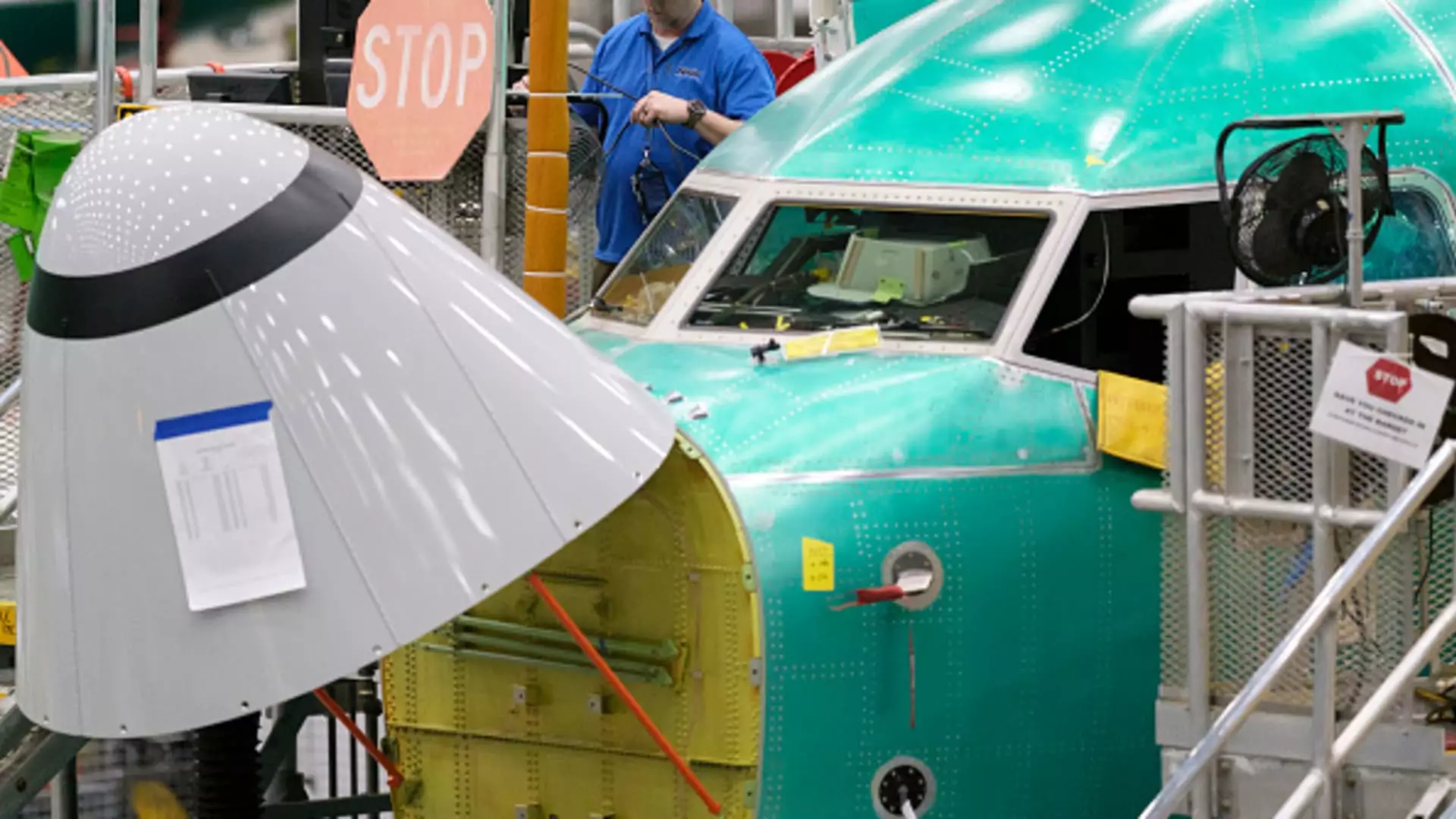In a critical juncture for both Boeing and its workforce, the recent labor agreement between Boeing and the International Association of Machinists and Aerospace Workers (IAM) has emerged as a shield against a potentially disruptive strike. The negotiations, held at a time when Boeing is grappling with severe safety and quality issues, were undoubtedly of paramount importance. With 33,000 workers depending on the outcome, the implications of this agreement extend far beyond mere numbers.
A Closer Look at the Agreement
The tentative deal, which proposes a substantial 25% wage increase over the next four years, illustrates a significant shift in Boeing’s approach towards employee compensation, especially in light of union demands that exceeded the 40% threshold. Although the increase is not as expansive as what the union sought, the agreement includes enhancements in healthcare and retirement benefits, which indicates a broader recognition of workers’ needs amidst the rising cost of living. Such benefits are crucial for a loyal workforce that has been vital for Boeing’s operations.
Interestingly, the deal also secures a promise from Boeing to commit to producing its next aircraft in the Pacific Northwest, a move that reinforces the company’s loyalty to its regional roots and workforce. This is particularly significant in an era where companies often seek to reduce costs by offshoring production. The regional commitment signals a potential shift in corporate philosophy, prioritizing local economies despite the pressures of global competition.
With the recent appointment of Kelly Ortberg as the new CEO, this agreement serves not only as a strategic win for the corporation but also as a personal victory for leadership aiming to restore confidence in Boeing. Ortberg’s focus on stabilizing the business during a tumultuous period underscores the critical nature of strong labor relations. The IAM’s statement—they consider their workforce integral to the company’s reputation—highlights the intrinsic link between employee morale and corporate identity.
Moreover, the looming threat of a strike posed significant risks to production schedules. A delayed contract could have set off a chain reaction affecting not just the immediate factory operations but also the overall brand integrity and shareholder value as delays in production could ultimately lead to lost revenue and diminished customer trust.
As the tentative deal awaits worker approval, a vote is scheduled for September 12—a date that holds the key to Boeing’s short-term stability. Should workers embrace this agreement, it may pave the way for a more collaborative relationship between management and employees as they navigate through challenging waters together.
However, the strain of ongoing negotiations and the need for substantial increases might still loom large in the minds of workers. The tension between what was demanded and what was offered remains, and while this agreement offers a reprieve, the underlying issues of worker satisfaction and corporate transparency must continue to be addressed moving forward. The coming months will be telling, as Boeing seeks to balance profitability with the welfare of its workforce while re-establishing its reputation as a leader in the aerospace industry.

